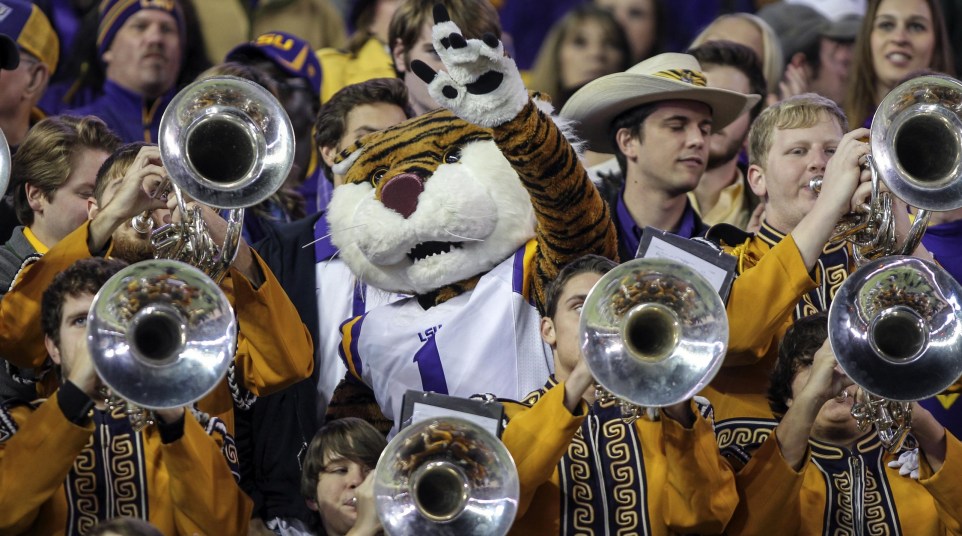Season-long Report Card: LSU
Handing out grades for LSU’s 8-5 season.
Offense: C
While LSU could certainly run the ball on just about anyone, averaging 4.7 yards per carry and finishing No. 4 in the conference in rushing yards per game, but the passing game was cringe-worthy all year. In his first year as starter, Anthony Jennings was mostly miserable, completing 48.9 percent of his passes. Without the benefit of hitting on a handful of very long touchdowns, Jennings paltry numbers would have looked much worse. His struggles defined the season offensively for the Tigers when a deep and talented backfield running behind a strong, veteran offensive line should have been the real story. Left tackle La’el Collins was the best overall player on the offense, and the Tigers ran behind him and LG Vadal Alexander as often as possible.
Defense: A-
Defying inexperience and early season performance, LSU ended up with the No. 1 defense in the SEC by season’s end. LSU was burned for 500-plus yards by its first two SEC opponents, but after that shored up to allow no more than 315 yards in any game the rest of the regular season. The defense really took off once Kendell Beckwith took over as middle linebacker, providing speed and athleticism that was missing in the linebacking corps. Two major drawbacks for the defense were an inability to get to the quarterback and a subpar season forcing turnovers.
Special Teams: C+
The special teams magic LSU has so often used in the Les Miles era wasn’t present in 2014. The Tigers had two return touchdowns, but neither provided the game-changing mojo that LSU has gotten in the past. Jamie Keehn was mostly solid punting the ball, but had his fair share of shanks to keep him from being a top-tier punter. Meanwhile, Colby Delahoussaye caught a case of the yips late in the season and struggled kicking the ball down the stretch. The Tigers also finished near the bottom of the country in punt return coverage, although that was balanced out by excellent returns on both punts and kickoffs and good kickoff return coverage.
Coaching: B-
Before he bolted for Texas A&M, John Chavis did a fantastic job masking some of LSU’s deficiencies on the defensive end, turning the team into the top overall unit in the conference. The offensive coaching was nowhere near as good, with Cam Cameron doing very little to maximize the relative talent of his quarterbacks and Miles failing to provide the team with any alternative to Jennings.
Overall: B-
LSU was in for a subpar season eventually after so many underclassmen losses over a two-year period. There was certainly room for this team to be better, but a group that was inexperienced to a man did well to win eight games in the SEC West.

